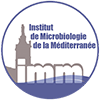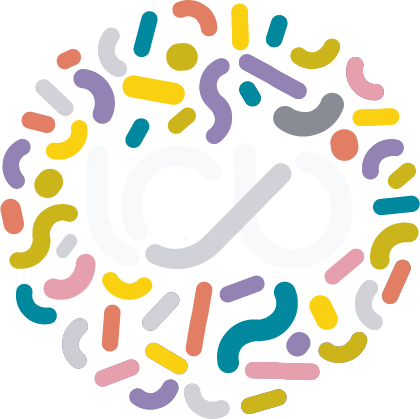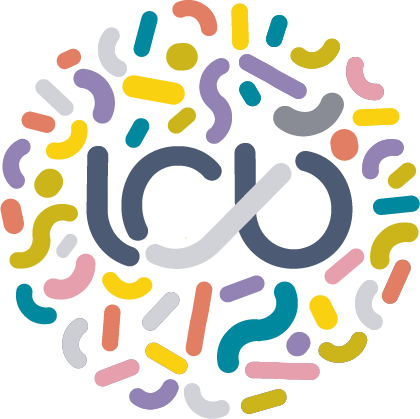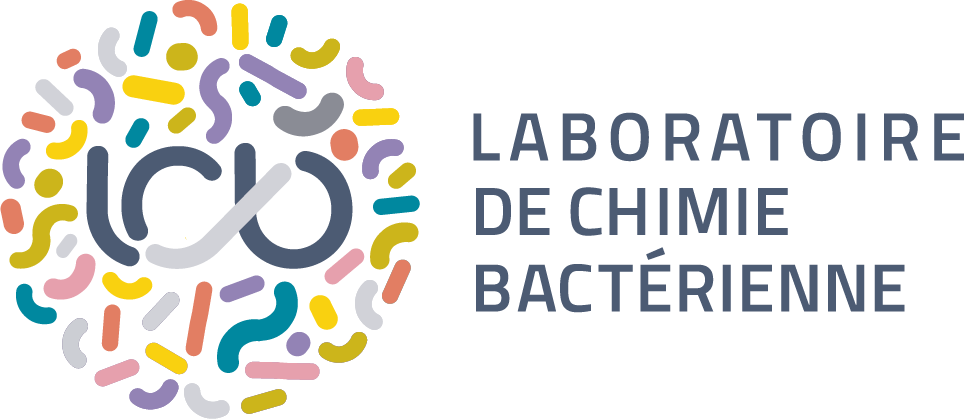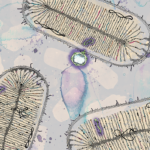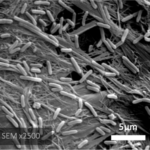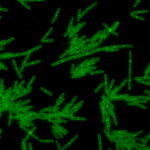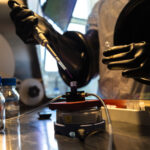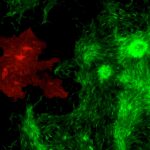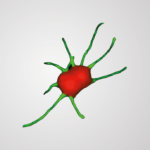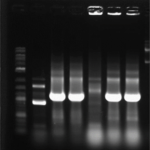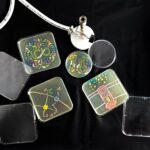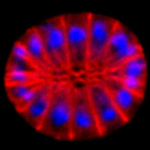Laboratoire de Chimie Bactérienne
The LCB, created in 1962, is a mixed research unit (UMR7283) between CNRS and Aix Marseille University located on the Joseph Aiguier campus within the Institut de Microbiologie de la Méditerranée. The laboratory hosts twelve teams all studying the functioning of bacteria at the molecular, cellular, multicellular and ecological levels. The bacterial species under study are chosen to explore core mechanisms of adaptation, enabling bacteria to sense their environment and form complex multicellular consortia. In particular, the laboratory’s teams are interested in the interactions between bacteria and their hosts, animals and plants, as well as their ability to colonize extreme environments. A long term goal of this research is to elucidate the evolutionary mechanisms that promote the amazing capacity of bacteria to adapt and constitute a formidable reservoir of biodiversity.
News
Science – Mise en évidence d’un nouveau module structural pour l’acheminement des quinones
Mise en évidence d’un nouveau module structural pour l’acheminement des quinones Pour fonctionner, les cellules doivent relier efficacement différents circuits métaboliques à travers des réactions ...
Science – Découverte d’un nouvel acteur de la régulation de l’élongation bactérienne
Découverte d’un nouvel acteur de la régulation de l’élongation bactérienne Le peptidoglycane, un constituant clé de la paroi cellulaire des bactéries Chez la plupart des bactéries, les protéines de...
Science – Un nouveau niveau de régulation découvert dans la sporulation bactérienne
Un nouveau niveau de régulation découvert dans la sporulation bactérienne L’équipe Galinier et ses collaborateurs ont mis en évidence un mécanisme inédit de régulation de la sporulation chez ...
Science – Création du Labo Pitchµm : Projet, Ingénierie & Technologie pour l’Univers Microbien !
C’est avec une immense fierté que nous vous annonçons la naissance du Labo Pitchµm. Avouez qu’après une équipe IAM qui a marqué les esprits, il fallait trouver un nom tout aussi fort av...
Collaborations
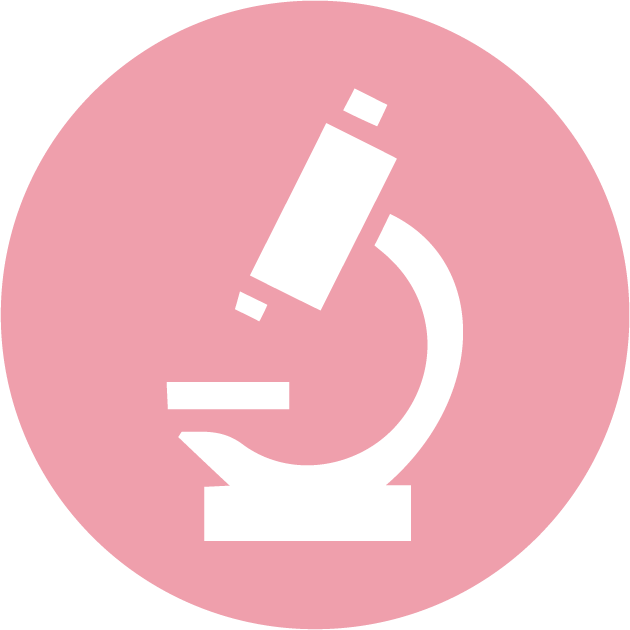
Plant Biomass degradation
En partenariat avec Marta Carballa, University of Santiago de Compostela (USC)
Plant Biomass degradation
En partenariat avec Aleš Berlec, JSI
Plant Biomass degradation
En partenariat avec Daniel Machado, NTNU
Investigation of the physiological role of formate oxidation in Bacillus subtilis
En partenariat avec Neumann-Schaal Meina, Leibniz InstituteInvestigation of the spatial organization of the denitrification apparatus in Pseudomonas Aeruginosa
En partenariat avec Borrero de Acuna Jose, Institute of MicrobiologyPseudomonas aeruginosa antimicrobial resistance
En partenariat avec Pr.Anna HIRSCH, Helmhotz centre infection research
Phages Salmonella enterica
En partenariat avec Josep Casadesús, Sévilla UniversityRecombinase
En partenariat avec Pepe Casadesus, Université de Séville
Prophages Salmonella enterica
En partenariat avec Jay Hinton, Liverpool University
Bacterial biosensors
En partenariat avec Erhan Biskin, Nanobiyomedtek Biyomedikal
Régulation de RpoS
En partenariat avec Susan Gottesman, National Institutes of Health
Caractérisation strucurale d'AppY
En partenariat avec Alexandra Deaconescu, Brown University
Oxidative stress
En partenariat avec Jean François Collet, Université catholique de Louvain
Antibiotics
En partenariat avec Nassos Typas, EMBLSystems level analysis of bacetrial predation
En partenariat avec Nassos Typas, EMBLBiogenèse des centres Fe-S et résistance aux antibiotiques
En partenariat avec Nassos Typas, EMBL
Plant Biomass degradation
En partenariat avec Yannick Bomble, NREL
Plant Biomass valorization
En partenariat avec Heike Straüber, Helmholtz centre for environmental research
Redox-active transcriptional regulator involved in the control of cell differentiation in cyanobacteria
En partenariat avec William N Lanzilotta, University of Georgia
Role of natural products in the regulation of cell differentiation in cyanobacteria
En partenariat avec Olga A. Koksharova, Moscow University
Investigation of the interplay between the superoxide:ubiquinone oxidoreductase and quinones
En partenariat avec Von Ballmoos Christoph, Bern University
Décrypter le rôle pivot de la réponse stringente dans la virulence et l'interaction hôte pathogène
En partenariat avec Sophie Helaine/Severin Ronneau, Harvard Medical school, Blavatnik institute MicrobiologyStudies of bacterial toxins
En partenariat avec Thomas Bernhardt and Ethan Garner, Harvard University
Rôle des alarmones (p)ppGpp dans l'adaptation et la survie au sein du microbiote intestinal
En partenariat avec Médéric Diard, Biozentrum University of Basel
Structure function analysis of bacterial Ras proteins
En partenariat avec Gayathri Pananghat, ISEER Pune
Cell biology of phage infections
En partenariat avec Douwe Van Sinderen and Jennifer Mahony, University of Cork
Modeling cell polarity
En partenariat avec Martin Howard, John Innes Center
Modeling chromosome-receptor dynamics
En partenariat avec Sean Murray, Max Planck University
Motility mechanisms in bacteria
En partenariat avec Makoto Miyata, Osaka City UniversityStructure and function of bacterial flagellar apparatus
En partenariat avec Keiichi NAMBA, Osaka City University
Staining bacterial peptidoglycan
En partenariat avec Yves Brun, University of Montreal
Biophysics of motility
En partenariat avec Joshua Shaevitz, Princeton University
The type II secretion system (T2SS) pseudopilus
En partenariat avec Pr. Katrina FOREST, University of Wisconsin
The type II secretion system (T2SS) interactom
En partenariat avec Pr. Loïc QUIBTON, Université de Liège
The type II secretion system (T2SS) secretin
En partenariat avec Pr. Iain HAY, Auckland University
Biologie synthétique et maturation des protéines à centres Fe-S
En partenariat avec Greg Bobinsky, TU Delft
Electromicroscopy characterization of magnetotactic bacteria
En partenariat avec Yongxin PAN, Wei LIN, Jinhua LI, Key laboratory of Earth and Planetary Physics, Institute of Geology and Geophysics, Chinese Academy of Sciences
Diversity and evolution of marine magnetotactic bacteria
En partenariat avec Tian XIAO, Key laboratory of Marine Ecology and Environmental Sciences, Institute of Oceanology, Chinese Academy of Sciences
Photo and magnetic effect on magnetotactic bacteria
En partenariat avec Tao SONG, Beijing Key Laboratory of Bioelectromagnetism, Institute of Electrical Engineering, Chinses Academy of Sciences
Mechanism of microbial adaptation to deep ocean
En partenariat avec Wei-Jia ZHANG, Xue-Gong LI, Laboratory of Deep Sea Microbial Cell Biology, Institute of Deep Sea Science and Engineering, Chinese Academy of Sciences
Biologie structurale
En partenariat avec Steve Matthews, Imperial College LondonPhosphorylation of Bacillus subtilis LTA synthases
En partenariat avec Angelika Gründling, Imperial College London
Spectrométrie de masse
En partenariat avec Jan Haug Anonsen, University of OsloLCB Partners



